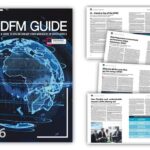Commencing from 1 April 2023, the Trust Property Control Act, 1988 requires trustees to create and keep up-to-date and lodge a beneficial ownership register (BoR) of each trust on the International Cost Management Standard (ICMS) web portal maintained by the Master of the High Court. Section 1 of the Act defines a trust’s beneficial owner as the trust’s founder/donor, trustees and any natural person who directly or indirectly ultimately owns the relevant trust property or who exercises effective control of the trust, and each beneficiary referred to by name in the trust deed. Non-compliance attracts fines of up to R10-million and/or up to five years’ imprisonment. While this requirement appears straightforward from a superficial/textual reading of the Act, this write-up provides a high-level summary of some of the hidden complexities of complying with the obligation.
Trustees have a fiduciary duty to exercise due care, skill and diligence in their administration of a trust.
Trustees must avoid assuming that merely because an individual is named/mentioned as a beneficiary in the relevant clause of the trust deed that such person is in fact a beneficiary of the trust. The beneficiary clause of some trust deeds merely sets out a “pool” of potential beneficiaries from which the trustees may from time to time select individuals on whom they may confer a benefit. The individuals in the “pool”, although named, only become beneficiaries from the date on which trustees vest or distribute a benefit or permit them to use a trust asset. It would thus be incorrect to include such individuals’ names in the relevant trust’s BoR before they receive a benefit from the trust. The wrongful inclusion of the details of such potential beneficiary in the trust’s BoR could constitute a breach of their constitutional right to dignity and privacy and as such could expose the trustees to a claim for damages.
Ordinarily, where an official (such as a trustee) performs a particular act in compliance with a statutory duty, they would be indemnified by the relevant legislation from any potential liability towards third parties. However, the Act does not grant any indemnity to trustees for any errors they might commit in complying with their BoR submission obligations. Trustees may have to look to the asset base of the trust or their professional indemnity cover for any protection in this regard.
It is interesting to observe that the South African Revenue Service (SARS) requires that one of the supporting documents that trustees need to submit together with a trust’s income tax returns is the BoR for the trust concerned, which must match the BoR lodged with the Master of the High Court. However, SARS’s definition of a trust “beneficial owner”, which extends to so-called “trust protectors”, is broader than that in section 1 of the Act (summarised above). Trustees must, accordingly, be mindful of this difference in definitions when submitting the trust’s tax returns and avoid being inadvertently in default of SARS’s requirements. This is complicated by the fact that there is no legal basis for SARS’s broader definition, yet SARS expects trustees to comply with its requirements.
Trustees have a fiduciary duty to exercise due care, skill and diligence in their administration of a trust. The latter duty entails compliance with all relevant laws that impact trusts, one of which is the BoR submission as provided for in the Act. However, it is arguable that this duty does not extend to laws that are invalid or unconstitutional.

In my view, the BoR regime is irrational and thus unconstitutional as there is no rational connection between the creation and maintenance of a BoR and the government’s fight against money-laundering and the financing of terrorism and the proliferation of weapons of mass destruction.
The BoR compliance obligation presents a minefield of constitutional and interpretational issues that are not immediately apparent from a superficial reading of the Act. It is thus highly advisable that where financial advisors recommend the use of a trust as part of a financial planning solution, the client and/or trustees be advised to seek competent legal advice on whether and/or to what extent they need to comply with the BoR submission obligation.













